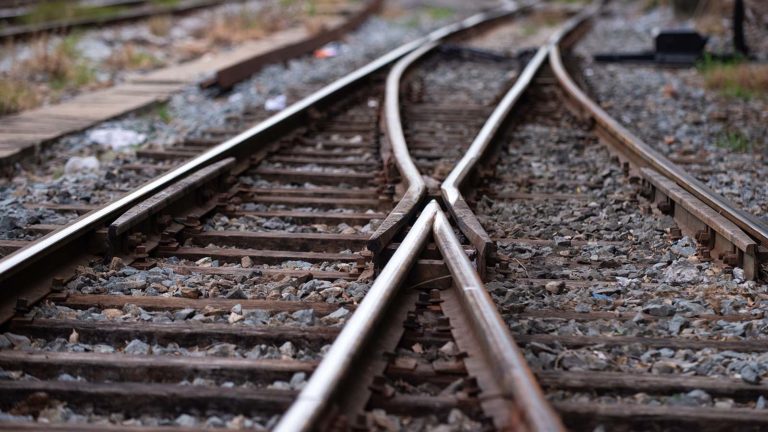The recent Norfolk Southern (NYSE:NSC) train derailment suggests it’s not the best railroad stock to buy.
According to Axios reporting, accidents on the company’s rail lines increased in the last four years. The company readily admitted this fact in its Jan. 23 earnings presentation. Sadly, Norfolk Southern isn’t the only company looking to make sure regulations don’t get tougher on railroads in America.
The Guardian recently reported that the trade organization representing the large railroad operators spent nearly $40 million between 2015 and 2022, ensuring voluntary, industry-led oversight was the law of the land and not hardnosed, government-enforced safety standards.
Don’t get me wrong, Berkshire Hathaway’s (NYSE:BRK-A, NYSE:BRK-B) railroad (BNSF) is also guilty of lobbying for laxer regulations; it’s a dues-paying member of the Association of American Railroads (AAR), just like Norfolk Southern.
But the way I see it, if you’re going to invest in a railroad, it’s far more sensible to put your faith in Warren Buffett.
Here are three reasons why.
| BRK-B | Berkshire Hathaway | $305.18 |
Diversification Helps Reduce Risk of Train Derailments

It appears Norfolk Southern has gotten off relatively scot-free from its Ohio derailment. Since the Feb. 3 incident, NSC shares have lost approximately 12%, not much worse than the 4.7% decline for the S&P 500.
Shareholders might have caught a break this time, but might be less lucky next time. Fortune reported that rail workers and union leaders have been shouting from the rooftops about the cost-cutting and underinvestment taking place amongst the industry’s most prominent players. I’m assuming BNSF is included in this small group of companies.
“The industry needs to be brought back under control,’’ Michael Paul Lindsey, a locomotive engineer and member of Railroad Workers United, a group representing workers from different unions, told Fortune. “We have problems with these massive long trains everywhere along the way, and companies are insistent that it has to work, even if we cut corners doing it.”
The difference with BNSF is that it’s held within a nearly $700 billion company, 416 times larger than Norfolk Southern. So, if all heck breaks loose in the railroad industry, Berkshire has many other businesses to insulate it from any damage to its railroad interests.
Specifically, BNSF generated $8.6 billion in operating earnings in 2022 from revenue of $16.6 billion. That’s just 5.5% of Berkshire’s 2022 revenue.
Imagine If Norfolk Southern Invested in Its Business Rather Than Stock

Over the past two years, Norfolk Southern spent an average of $8.9 million per day [$6.5 billion divided by 365] repurchasing its shares. By comparison, it will pay just $6.5 million to compensate the good people of East Palestine, Ohio.
It hardly seems fair, but the rich tend to get richer while the poorest folk barely get by.
I have one question for long-time Norfolk Southern shareholders: do you believe the company’s $6.5 billion share repurchases in 2021 and 2022 delivered a timely return on investment?
I’ll answer that for you. No, not even close.
In 2022, Norfolk Southern bought back $3.1 billion of its stock at an average price of $246.03. In 2021, it bought back $3.4 billion at $267.72.
So, overall it paid $6.5 billion for 25.3 million shares at an average price of $256.92. Based on its current share price, it has a compound annual growth rate of -5.7% over 26 months on those share repurchases. That compares to 2.9% for the S&P 500 over the same period.
Berkshire’s Share Repurchases Won’t Be Willy Nilly

Warren Buffett discusses share repurchases in Berkshire’s 2022 shareholder letter.
“The math isn’t complicated: When the share count goes down, your interest in our many businesses increases. Every small bit helps if repurchases are made at value-accretive prices. Just as surely, when a company overpays for repurchases, the continuing shareholders lose,” Buffett wrote on page six.
According to this letter, Berkshire bought back 1.2% of its outstanding shares in 2022. K-105 of its 10-K bought back 11,098 Class A shares and 9.9 million Class B shares for $7.85 billion. Each Class A share is convertible into 1,500 Class B shares.
This means it bought back 26.5 million Class B shares [11,098 Class A times 1,500 = 16.7 million Class B plus 9.9 million Class B] at an average price of $296.23. Berkshire’s high for 2022 was $362.10, and its low was $259.85, for a midpoint of $310.98. It paid 4.7% less than its midpoint, a decent, if not spectacular, job buying back its stock.
Buffett might not buy back Berkshire shares at the absolute bottom like Dr. Henry Singleton often did (in 1980, Buffett said Singleton was the best capital allocator in American business), but you can be sure he would never overpay for them. And he certainly wouldn’t do so at the expense of keeping his various industries operationally sound.
There is no logic to owning NSC stock over Berkshire Hathaway.
On the date of publication, Will Ashworth did not have (either directly or indirectly) any positions in the securities mentioned in this article. The opinions expressed in this article are those of the writer, subject to the InvestorPlace.com Publishing Guidelines.
